
Picture a world where you could get a vaccine without being jabbed with a needle, where you could get an expert medical opinion in a few clicks instead of a few weeks and where organ transplants are no longer a race against time. In this new world, agricultural pests and disease are controlled without traditional chemical pesticides and global pandemics are controlled quickly and cost-effectively with new vaccines. If the nominees for this year’s Barry M. Portnoy Immigrant Entrepreneur Award for Life Science Business have their way, that’s the world we’ll all be living in soon.
With more than 1,000 biotech companies headquartered here, the Boston area is known as a global center of biotechnological innovation. The Life Science Business category is meant to show the critical role immigrants have played in making this possible. After all, more than one quarter of all biotech companies in New England have an immigrant founder. It’s no surprise that immigrants, people who are willing to leave behind everything familiar and start over somewhere completely new, are such an incredible source of fresh, groundbreaking ideas.
Revolutionizing Organ Transplants
Life-saving organ transplantation is one field in need of new ideas. Every 10 minutes, someone in the United States is added to the waiting list for a donated organ. In 2017 alone, 6,500 candidates died before an organ could be found. Dr. Waleed Hassanein is revolutionizing organ transplants and increasing the odds for many desperate patients.
As a resident doctor at Georgetown University Medical Center, Hassanein was stunned to find that organ transportation technology had not evolved beyond stuffing donated organs into picnic coolers full of ice cubes. With the same drive and determination that led him to leave his native Egypt and pursue a medical career in the United States, he began looking for a better solution. That drive led him to start his company, TransMedics, to commercialize his Organ Care System (OCS). His invention can keep hearts beating and lungs breathing outside the body, which increases organ viability by two to three times longer than traditional methods and dramatically improves the chances of a good match. To date, OCS has been used in more than 1,300 organ transplants worldwide and is poised to become the new standard of care for solid organ transplantation. Looking ahead, Dr. Hassanein believes that the OCS technology holds the potential to unlock entirely new approaches to treating disease. For example, OCS could allow doctors to treat organs with chemotherapy outside the body without the risk of the side effects.
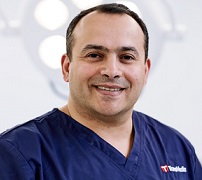
How does OCS work?
See for yourself:
Modernizing Drug Delivery
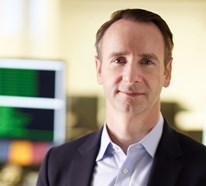
Dr. Patrick Anquetil, wants to revolutionize an even older medical device: the needle and syringe. That technology has been delivering medications for more than 160 years, but Dr. Anquetil thinks we deserve better. His company, Portal Instruments, has created a needle-free jet injection device that he intends make the standard for modern drug delivery. He imagines a needle-free world where painful injections and fears of getting a shot are things of the past. In particular, this device could improve quality of life for patients with chronic illnesses who self-inject on a regular basis.
More than most, Dr. Anquetil knows what it’s like to start over in a new country. He left his native France to pursue a master’s degree from the ETH (Swiss Federal Institute of Technology) in Zurich and the University of Tokyo before coming to Cambridge, Mass. Here he earned his MBA from Harvard and doctorate in bioinstrumentation from MIT, and he stayed to build a life and career. Dr. Anquetil always dreamed of starting a company. It wasn’t until he came to Boston and saw the “ecosystem” of universities, start-ups and hospitals that he realized he could do it. His extraordinary success, including the creation of two prior companies, Aretais Inc. and SynapDx, is proof that he chose well. Dr. Anquetil mentors other immigrant entrepreneurs. His top advice, particularly for those in life sciences? Come to Boston!
Democratizing Speciality Medicine
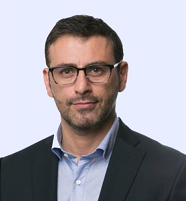
Ask an immigrant why they came to the United States, and you are likely to hear “for more opportunity.” Capitalizing on opportunity is an immigration super power. Dr. Babak Movassaghi saw the immense potential of telemedicine when it was still just a buzzword. If you can use the internet to have a video conversation with your friends on their trip to Thailand, why shouldn’t you be able to access the United States’ top medical experts from anywhere in the world? This German immigrant turned that opportunity into reality when he created InfiniteMD, a virtual expert opinion provider.
Dr. Movassaghi believes that neither language nor geography should be a barrier to accessing top health care. That’s why InfiniteMD collects and translates medical records in any language and provides medically trained interpreters during live video consultations. InfiniteMD provides access to 2,000 of the world’s leading physicians to 3 million people around the world. The results speak for themselves. Twenty-one percent of patients using InfiniteMD changed or corrected their diagnoses, and 72 percent improved their treatment plans. A lot more people are likely to take advantage of this opportunity as 99 percent of patients would recommend InfiniteMD to friends and family.
Achieving the Impossible
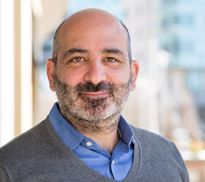
It should be no surprise that nominees for the 2019 Barry M. Portnoy Immigrant Entrepreneur Awards have the potential to improve people’s lives in a myriad of ways. Two-thirds of immigrant-led biotech companies focus on research with applications to human health, compared to less than half of companies without a foreign-born founder. Andrey Zarur, from Mexico, and Marta Ortega-Valle, from Spain, founded their company Greenlight Biosciences to improve the health of people and our planet.
Using their GreenWorX platform, Zarur and Ortega-Valle are helping innovators safely and cost-effectively use RNA (DNA’s less famous cousin) to target some of the world’s biggest problems. They want to use their RNA technology to do everything from improving vaccines to protecting the world from pandemics to creating eco-friendly pesticides. Investors are taking note to the tune of $96 million over several rounds of funding.
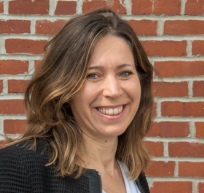
Greenlight Biosciences is proving that biotechs can have a successful business and a social conscience. In fact, Dr. Zarur has said, “We believe it is our duty to society to achieve the impossible.” To that end, the company has opened up their biological platform to help partners in academia and industry research and create RNA-based products that can positively impact society and help save the Earth for future generations.
Conclusion
In addition to technological breakthroughs, immigrant entrepreneurs create jobs and enable the next generation of scientists and business leaders. Immigrant-led biotech companies employ more than 4,000 people and produce more than $7.5 billion in sales in New England alone. All of the 2019 Barry M. Portnoy Immigrant Entrepreneur Award nominees featured here are working to strengthen the ecosystem and encourage more entrepreneurship. For example, Dr. Movassaghi helped build MIT Hacking Medicine, a group created to accelerate medical innovation by teaching health care entrepreneurship. Although we have only just scratched the surface of how immigrants are making a difference, it is clear that Boston could not be the capital of Life Science innovation without them.
